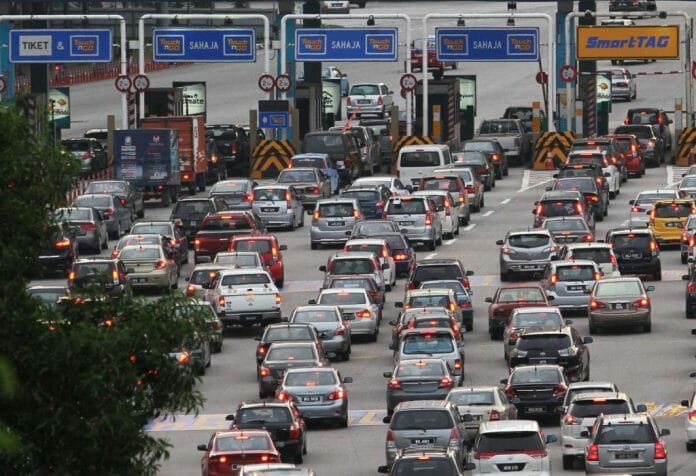In the UK, the Covid-19 cases brought about by the Omicron variant have peaked which means the infection curve has flattened. Although daily infection is still in the six-digit, it has reduced by half.
This has prompted Prime Minister Boris Johnson to double down on Covid-19 protocols by lifting almost all remaining coronavirus restrictions. In an announcement on Jan 20, Johnson said England’s current restrictions measures known as Plan B are to end from next Thursday, with mandatory face coverings in public places and Covid passports both dropped.
The prime minister also said the government would immediately drop its advice for people to work from home. In his tweet, Johnson justified his action by saying:
“We were the first nation in the world to administer a vaccine, and one of the fastest in Europe to roll it out. We kept open this winter while others locked down. And we’re the first to emerge from Omicron because we delivered the fastest booster campaign in Europe.”
One response to his tweet: “I speak for all when I say we need to shut down everything for 3 months due to covid Boris.”
His lookalike, former President Donald Trump, had already attempted what Johnson is doing now with utter failure in 2020.
In contrast, Malaysia has taken a proactive approach on the part of the Health Ministry to prevent a surge in the Omicron variant before it even rears its ugly head like what is happening in Europe presently.
The firm measures in suspending umrah indefinitely, cracking down on fake vaccination certificates, and giving additional duties to travel agents to check and report on the health status of their pilgrims are all preventative measures aimed at dealing with the possible surge of Covid-19 cases, especially the Omicron variant.
For now, the saving grace in Malaysia is that there was a reduced risk of hospitalization from Omicron compared with the Delta when it first made its appearance, along with a reduced risk of severity in both younger and older people.
Almost 99% of Covid-19 patients infected with the Omicron variant are in categories 1 and 2 (no symptoms and mild symptoms). And about 98% of total daily cases of Covid-19 are also in categories 1 and 2.
But as pointed out by Health Minister Khairy Jamaluddin, the number of Covid-19 cases in Malaysia could rise to more than 30,000 per day by the end of March, if measures were not taken to control the spread of the Omicron, which include the temporary suspension of Umrah travels to Saudi Arabia and the revision of quarantine standard operating procedures (SOPs).
“If the basic reproduction number (R-naught or R0) of Covid-19 infections increases to 1.2, daily Covid-19 cases will increase to 10,000 per day, and if R0 is 1.6, we will see an increase in daily cases to more than 30,000,” Khairy cited the Susceptible, Exposed, Infectious and Removed (SEIR) model of daily observed and forecasts Covid-19 cases prepared by his Ministry.
So the key lies in managing the R0.
And to keep it below 1 would entail introducing preventative measures such as the temporary suspension of Umrah travels to Saudi Arabia, the revision of quarantine SOPs and the introduction of SOPs for celebrating any festivals with public holidays such as Thaipusam or Chinese New Year.
As of Jan 18, the R0 for Malaysia is at 0.99, not a comfortable figure as any lapses in preventative measures will bring it to 1 or above. But if we break it down based on states, there are seven that have an R0 of above 1 – Kuala Lumpur (R0 of 1.08), Negri Sembilan (1.06), Melaka (1.04), Kedah and Johor (1.03 each), and Selangor and Sabah (1.01 each)
The best-case scenario would be if every state could have an R0 of below 0.9.
Just to underscore the importance of R0, let’s take the case of Singapore. On Sunday (Jan 16), with an R0 of 1.49, the total daily case was 863.
Then the next day (Jan 17), there was a big jump in R0 to 1.60 with a total daily case of 1,165 – the first time daily cases was in the four-digit in the republic since Dec 2.
Meanwhile Health director-general Tan Sri Dr. Noor Hisham Abdullah was spot on when he said on Jan 17 that even though the Omicron variant is considered to be less severe than the Delta variant, the higher transmission rate could cause an increase in hospitalisation.
Hence, the Health Ministry has put several measures in place to prepare for the possibility of a surge in Covid-19 cases due to the Omicron variant.
“There may be an increase in patients that require a short stay in the hospital particularly among high-risk groups such as senior citizens, individuals with comorbidity and children, which will pressure the healthcare system in the country.”
As such, said Dr. Noor Hisham, the ministry has turned district hospitals into hybrid hospitals to treat Category 1, 2, and 3 patients.
While patients under Category 4 and 5 will be referred to specialist hospitals, stable cases will be isolated at home, monitored by Covid-19 Assessment Centres (CAC) till the isolation period ends.
Moreover, patients will be treated with identified antiviral medicine at an early stage at CAC and Covid-19 quarantine and treatment centres.
Dr. Noor Hisham also stressed that the whole-of-government, whole-of-society approach is vital in ensuring there is no surge in Covid-19 cases caused by a new variant.
“Hence, continue to adopt and strengthen self-control, continue to comply with the SOPs and get vaccinated so that Covid-19 cases can be under control in the country,” he added.
Meanwhile, through his tweet, he gave rays of hope that this year’s Hari Raya celebrations might just be different from the last two years if only the public continues to get booster jabs as protection for themselves and their family.
As Hari Raya Puasa is more than three months away, there is hope that it could be different this time around if preparations for a relatively stable Covid situation is made now by consistently observing SOPs, getting a booster jab, and making the R0 as low as possible, say 0.8 or below.
Social visits were not allowed during the last two years of Aidilfitri celebrations.
Jamari Mohtar is the Editor of Let’s Talk!, a newsletter on current affairs.









